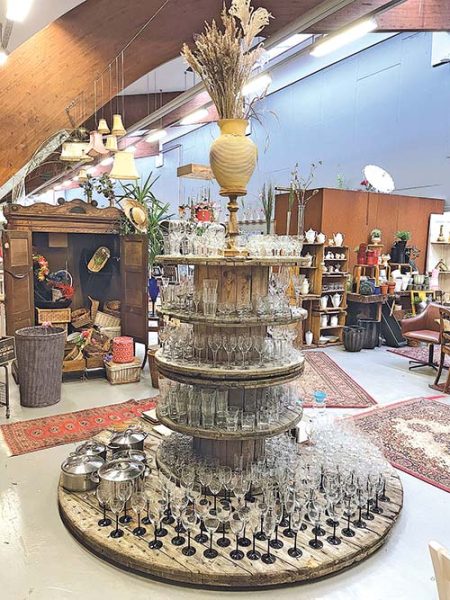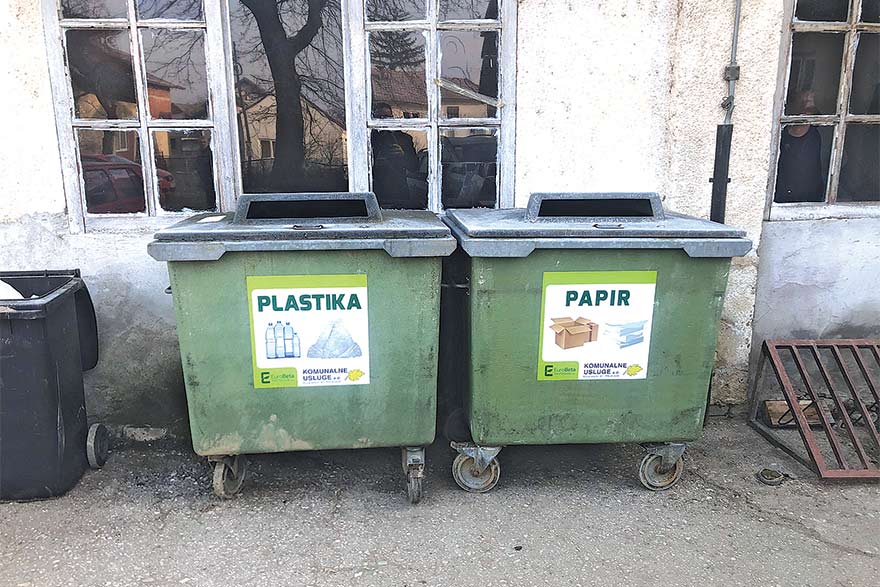Climate change, biodiversity loss and resource scarcity oblige us all to rethink our businesses and our responsibility. The fact that we, at Odense Waste Management, have amassed so much knowledge over so many decades gives us a special obligation to actively use this knowledge to, among other things, encourage the implementation of a circular economy. We invite you to make use of our knowledge, and we look forward to assisting in the development of the circular economy in Serbia, as well as in other countries.
There is a worldwide need to manage waste in a much better way by being innovative and finding new paths, so that we can make better use of our resources. Circular thinking must be integrated into the entire consumption and production chain. Companies and consumers must find ways of using resources in a far better way than we do today.
In Odense, Denmark, the City Council is about to approve a new waste management plan that contains several initiatives supporting a circular economy. The 200,000 citizens of Odense are encouraged to upcycle, reuse and recycle more. The plan also contains actions that support new business within the circular economy.
These initiatives link to the recently released “Climate Action Plan 2022”, which will, among other things, make Odense climate neutral by 2030 through the removing of 490,000 tons of CO2 in Odense Municipality.
Serbia is also embracing the circular economy: a roadmap has been developed by the Ministry of Environmental Protection and a three-year action plan is currently being developed. Odense Waste Management participated in the recent conference “Boosting Circular Economy in Serbia – Nordic Experiences”, which was organised by the embassies of Denmark, Finland, Norway and Sweden in Novi Sad and presents initiatives from Odense to inspire local actions in the circular economy in Serbia.
3 EXAMPLES OF CIRCULAR PROJECTS IN ODENSE
Odense Waste Management is a limited company owned by Odense Municipality. We have been collecting municipal waste since 1885. Apart from having collected waste from citizens and small enterprises for decades, we have also collected experience and knowledge about all aspects of waste management. The fact that we have accumulated so much knowledge through so many decades gives us a special obligation to actively use this knowledge to encourage the implementation of a circular economy.
The last decade’s focus on the cradle-to-cradle concept, the UN Sustainable Development Goals and the circular economy has given us the opportunity to capitalise on our knowledge with concrete projects producing tangible results. Let us present three of them here.
DONATION OF EQUIPMENT: FROM WASTE PREVENTION IN DENMARK TO BETTER RECYCLING AND BETTER WORKING CONDITIONS IN BOSNIA-HERZEGOVINA AND SERBIA
In 2019, Odense Waste Management was set to replace outdated equipment due to the introduction of a new waste collection system. The fibreglass containers no longer met the required standard or the needs of Odense and were originally intended to be shredded. However, a request from the City of Prijedor in Bosnia-Herzegovina, which was in need of new equipment for waste collection, encouraged us to rethink and take a more circular approach. We decided to send 2,000 old containers to Bosnia-Herzegovina and this donation made it possible to introduce the collection of more waste fractions in Bosnia-Herzegovina. Requests soon followed from nine other cities in Bosnia-Herzegovina and from Serbia’s Guča and Lučani. In total, Odense Waste Management was able to donate 8,602 waste containers.
According to the Head of the Transportation Department at Odense Waste Management, Lars T. Hansen, “it was a big job to get the containers to Bosnia-Herzegovina and Serbia, but having seen what a difference they make I have no doubt that it was worth the effort”.
With Serbia embracing the circular economy, there is a lot that it can learn from Danish experiences. Representatives of Odense Municipality’s Odense Waste Management participated in the recent conference “Boosting Circular Economy in Serbia – Nordic Experiences” and showed their knowhow
PROMOTING CIRCULAR CONVERSATIONS THROUGH THE SECOND-HAND SHOP, REUSE WAREHOUSE AND COLLABORATION PLATFORM FOR GREEN ENTREPRENEURS IN ZIRKEL
In 2020, Odense Waste Management opened its doors to zirkel, a house of circularity where items collected from recycling centres’ containers for “Reusable effects” are collected, distributed, exhibited or sold.

The zirkel second-hand shop aims to shows the beauty and possibilities of many discarded items in a different and creative setting. zirkel is not a traditional second-hand shop, but more of a showroom for the better use of discarded materials, upcycling and circular thinking. Visitors to the zirkel second-hand shop are inspired to be creative and to see discarded materials in new contexts.
The zirkel reuse warehouse is packed with items that the second- hand shops of humanitarian organisations have access to and are able to pick up and sell in their own shops. Several filled containers are transported every week from recycling centres to zirkel, where they are sorted and neatly stacked on shelves for collection by humanitarian organisations. The zirkel warehouse is a resource bank for entrepreneurs, artists and educational institutions.
zirkel is also a platform for collaborations with entrepreneurs, artists, local enterprises and educational institutions that want to work together to promote upcycling, redesign and circular thinking.
zirkel is an example of how items from recycling stations can be used in numerous ways, as opposed to being incinerated, deposited or recycled. It is also an example of how we can promote circular thinking by collaborating and experimenting.
“CIRCULAR IN ODENSE” – CREATING GREEN ENTERPRISES AND PRODUCTS
The EU-funded “Circular in Odense” project aims to help green entrepreneurs, from idea to prototype, and at best also to business. Over the three years of this project, Odense Waste Management has succeeded in helping 10 partners work with different circular issues, from textile recycling to a packaging- free grocery store and social urban furniture. The project runs until the end of 2021 and offers everyone a business idea, based on the circular economy, assistance with business development and the possibility of becoming a partner and receiving financial business start-up support.
The “Circular in Odense” project has initiated new circular prototypes and new circular businesses, while it has also inspired others to seek green business opportunities. This provides an important contribution to the circular conversation locally and globally. The 10 partners’ business cases are an excellent source of inspiration for other entrepreneurs who aspire to make a difference by establishing a circular production chain.
“Circular in Odense” is an example of how a company can use its knowledge and passion to speed up circular development. It is our experience that, by being willing to invest time and share materials from the recycling centres, our relatively small contribution is a catalyst for many emerging entrepreneurs with ideas of how to make circular production and consumption chains.
COOPERATION IS KEY FOR US AND FOR THE CIRCULAR ECONOMY
For many people, waste collection and waste management are associated with a low status. However, for our 180 employees, waste management is associated with high importance: our employees are proud to be waste collectors, waste guides and waste experts. We think it is very interesting to be able to use the knowledge we’ve accumulated over many years to make a difference in the green area.
We invite you to utilise our knowledge and look forward to assisting in the development of the circular economy in Serbia and other countries.
Michael Dino Hansen is Waste Management Specialist at Odense Waste Management Ltd. Dorthe Lind Christensen is Senior Advisor, CSR and Sustainability, at Odense Waste Management Ltd.
